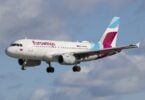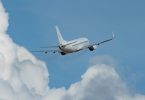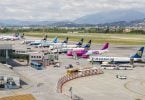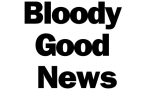BRUSSELS – The European Union is aiming too high with plans to make all airlines flying into and out of the bloc buy pollution permits and it risks a backlash from other regions, the chief executive of British Airways said.
Under proposals being drawn up in Brussels to fight climate change, airlines using EU airports would be included in the EU’s Emissions Trading Scheme from 2012, with a cap on their emissions of greenhouse gases blamed for global warming.
Airlines would gradually have to buy emissions certificates at auction, starting with 20 percent of permits in 2013 and rising to 100 percent in 2020.
“What we’re saying is by all means be ambitious but don’t put the whole system at risk by trying to impose it on other nations at a completely different point in their whole thinking on climate change,” BA Chief Executive Willie Walsh said.
From 3 percent of mankind’s total contribution to global warming in 2005, aviation’s emissions are set to rise by a factor of two to five by 2050, the U.N.’s Intergovernmental Panel on Climate Change (IPCC) said in a report last year.
Walsh told Reuters emissions trading within the EU was the best way for the bloc’s aviation industry to respond to climate change, possibly inspiring other regions to adopt it later, but extending it forcibly now risks undermining the scheme.
The United States and many other countries are deeply opposed to the plan by Brussels, arguing it would illegally roll out EU jurisdiction beyond European territory.
BACKLASH
“I think to go in and say here’s the solution, we’re applying it everywhere, you must do what we tell you… You’re going to get a backlash,” Walsh said in an interview. “The warning signals are loud and clear.”
European airlines could be at risk of retaliation in the form of restricted access to third countries or punitive taxes and non-European airlines might shun the region as a hub for long-haul flights, he said.
“We need to be careful that we don’t encourage air transport to move away from Europe and move into other hub airports like the Middle East where Dubai is a perfect example.”
BA, as one of the world’s biggest airlines with a network of routes outside the EU, stands to be hit hard by the emission permit plans while some of its non-EU competitors could have a lighter burden due to their use of hubs near Europe, meaning only the last legs of long-haul flights would require permits.
The European Parliament and the council of member states approved a plan late last year for all airlines flying in and out of the EU — and not just within it — to join the ETS early in the next decade.
The plan has yet to be put to a second vote in the European Parliament, giving airlines such as BA a chance to lobby for changes to the final text.
Walsh was in Brussels for meetings with EU officials.
Some environmental groups say the plan is too soft on airlines because, unlike other sectors, it will allow them to receive the bulk of their emissions permits free from 2013, only rising to 100 percent via auctions by 2020.
“They’e going to get a lot of emissions for nothing and 2020 is definitely too late given the growth in emissions from the sector,” said Mahi Sideridou, Greenpeace’s EU policy director.






















